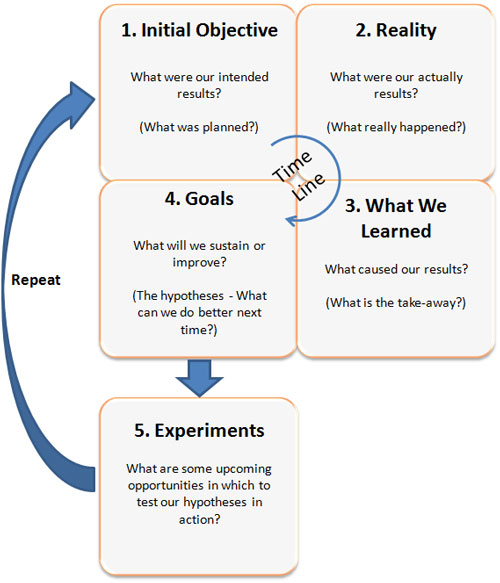
The Illinois State University Construction Management degree is an excellent option if your goal is to work in construction management. This school is accredited by the Associated Schools of Construction. The program offers a hands-on approach in construction management that prepares students to enter the workforce. Here you will find information about the program's curriculum and job outlook as well as GPA requirements. You can also enroll online. However, you must be aware of the requirements before you apply.
Associated Schools of Construction
The region III student competition was held in Downers Grove (Illinois) on October 18-21. Lead by Caleb Jacob (student), Joel Jimenez (student), Jose Quiroz (student), and Adam Wenberg, the Illinois State team placed second. The project was completed by the team for Misericordia Bakery in Chicago. Walsh Construction Company sponsored the project.
Students were able experience real-world construction projects through participation in a regional competition. They had 13 hours to prepare their bid proposals at a pre-bid meeting on October 21. The bid proposal was submitted by the team at 8 p.m. that same day. On Friday, October 22, they presented the proposal to Pepper Construction, who was pleased with the results. The project required team members to demonstrate knowledge of plans, problem-solving skills, and communication skills.

Curriculum
The Illinois State University Master's program in Construction Management will help you get a job as a manager. The program is designed to equip students with the necessary managerial and technical skills to be able to assume leadership positions in the construction industry. The program gives students the chance to get hands-on experience in construction. The program focuses on management and business concepts, and students will also learn how to take care of the environment. You will also be required to do a practical internship.
The Curriculum of Illinois State University's Construction Management program is an interdisciplinary program. It includes courses in communication, business administration, and the basics and principles of engineering and architecture. The program also offers courses in applied science and mathematics. The American Council for Construction Education has granted accreditation to the program. It is therefore open to the general public. It is also designed for the construction industry. It will help you excel as a contractor.
Job opportunities
The construction management program at Illinois State University offers 182 different majors, with 40-50 graduates each year. It is a competitive program that attracts national and local construction contractors as well as home builders who are looking to hire people with solid track records. The American Council on Construction Education has accredited the program. It is part of the university’s Sustainable and Renewable Energy programs. The program's career fair brings together students, employers, and recruiters to help graduates find employment in the construction industry.
Students who graduate from the program may start a career in construction management by finding a position as a project manager. The construction management field is expanding and managers must be able to do their job well. Construction managers need to have the ability to manage projects and supervise subcontractors. This program provides many job opportunities for graduates, including architects, construction supervisors, and engineers.

GPA required for admissions
For admission to a college, you must have a minimum of a 2.0 GPA. Your academic standing at your previous institution must be excellent. Majors often require a higher GPA. Additional information may be required to prove your eligibility for a new degree. You can read more information about the Illinois State University admission requirements.
A New Start is available for those who have completed at least 12 credit hours of college course work. To be eligible for a New Start, however, you must have completed at least 80 hours of construction-related coursework in a qualified post-secondary institution. Once you meet these requirements you can apply to the program. However, you should be aware that the GPA required for admission to Illinois State University construction management program will depend on your previous academic record.
FAQ
What is the difference of a program and project?
A project is temporary, while a program lasts forever.
Projects usually have a goal and a deadline.
It is usually done by a group that reports back to another person.
A program will usually have a set number of goals and objectives.
It is usually done by one person.
What is Six Sigma?
It's an approach to quality improvement that emphasizes customer service and continuous learning. The goal is to eradicate defects through statistical techniques.
Motorola developed Six Sigma in 1986 to help improve its manufacturing processes.
The idea spread quickly in the industry. Today many organizations use six-sigma techniques to improve product design.
What are the three basic management styles?
There are three types of management: participative, laissez faire, and authoritarian. Each style is unique and has its strengths as well as weaknesses. What style do you prefer? Why?
Autoritarian - The leader sets direction and expects everyone else to follow it. This style is most effective when an organization is large, stable, and well-run.
Laissez-faire – The leader gives each individual the freedom to make decisions for themselves. This style is best when the organization has a small but dynamic group.
Participative - Leaders listen to all ideas and suggestions. This is a great style for smaller organizations that value everyone.
Six Sigma is so popular.
Six Sigma is easy to implement and can produce significant results. Six Sigma also gives companies a framework for measuring improvement and helps them focus on what is most important.
What is the main difference between Six Sigma Six Sigma TQM and Six Sigma Six Sigma?
The key difference between the two quality management tools is that while six-sigma focuses its efforts on eliminating defects, total quality management (TQM), focuses more on improving processes and reducing cost.
Six Sigma is an approach for continuous improvement. It emphasizes the elimination or minimization of defects through statistical methods such control charts and p charts.
This method seeks to decrease variation in product output. This is done by identifying root causes and rectifying them.
Total quality management refers to the monitoring and measurement of all aspects in an organization. This includes training employees to improve their performance.
It is often used to increase productivity.
Statistics
- 100% of the courses are offered online, and no campus visits are required — a big time-saver for you. (online.uc.edu)
- The BLS says that financial services jobs like banking are expected to grow 4% by 2030, about as fast as the national average. (wgu.edu)
- Hire the top business lawyers and save up to 60% on legal fees (upcounsel.com)
- As of 2020, personal bankers or tellers make an average of $32,620 per year, according to the BLS. (wgu.edu)
- The profession is expected to grow 7% by 2028, a bit faster than the national average. (wgu.edu)
External Links
How To
How do you implement Quality Management Plans (QMPs)?
The Quality Management Plan (QMP) was established in ISO 9001. It is a systematic way to improve processes, products and services. It helps to improve customer satisfaction and product/service quality by continuously measuring, analyzing, controlling and improving.
The QMP is a standard method used to ensure good business performance. QMP helps improve production, service delivery and customer relationships. QMPs must include all three elements - Products, Services, and Processes. A "Process" QMP is one that only includes one aspect. If the QMP is focused on a product/service, it's called a QMP. The QMP that focuses on customer relationships is known as the "Customer" QMP.
Two main elements are required for the implementation of a QMP. They are Scope and Strategy. These elements are as follows:
Scope is what the QMP covers and how long it will last. For example, if you want to implement a QMP that lasts six months, then this scope will outline the activities done during the first six.
Strategy: This describes the steps taken towards achieving the goals set forth in the scope.
A typical QMP has five phases: Planning (Design, Development), Implementation (Implementation), and Maintenance. Each phase is explained below:
Planning: This stage determines the QMP goals and prioritizes them. To get to know the expectations and requirements, all stakeholders are consulted. Once the objectives and priorities have been identified, it is time to plan the strategy to achieve them.
Design: This stage is where the design team creates the vision, mission and strategies necessary for successful implementation of QMP. These strategies are executed by creating detailed plans.
Development: Here the development team works toward building the necessary resources and capabilities to support the successful implementation.
Implementation: This refers to the actual implementation or the use of the strategies planned.
Maintenance: The maintenance of the QMP is an ongoing task.
Additional items must be included in QMP.
Stakeholder involvement is important for the QMP's success. They should be involved in planning, design, development and implementation of the QMP.
Project Initiation. It is important to understand the problem and the solution in order to initiate any project. In other words, the initiator needs to know why they want to do something and what they expect from the outcome.
Time frame: The QMP's timeframe is critical. For a short time, you can start with the simple version of the QMP. However, if you have a long-term commitment, you may require more elaborate versions.
Cost Estimation - Cost estimation is an important part of the QMP. It is impossible to plan without knowing what you will spend. Before you start the QMP, it is important to estimate your costs.
QMPs are not only a document, but also a living document. This is the most important aspect of QMPs. It evolves as the company grows and changes. It should therefore be reviewed frequently to ensure that the organization's needs are met.